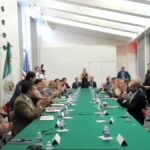‘Train-the-trainer’ workshop begins foundation for semiconductor education

By Jerry Gonzalez |
July 31, 2023
ShareFacebookTwitterLinkedInEmail
The objective of a memorandum of understanding (MOU) signed in Tempe in November to integrate Mexico into the semiconductor industry in support of the CHIPS Act got underway recently with a “train-the-trainer” course to prepare instructors who will educate the future semiconductor workforce.
The workshop, held in Hermosillo, Sonora, and virtually July 17–20, is a key deliverable for the academic foundation envisioned in the MOU endorsed by Arizona State University, Mexico and the state of Sonora, said Mexico’s Ambassador to the U.S. Esteban Moctezuma Barragán virtually during the event’s opening ceremony.
“This not only contributes to the creation of a more competitive and integrated North America in terms of workforce development, but also places Sonora at the forefront of semiconductor training,” Moctezuma Barragán said. “Fostering the development of an ecosystem is essential for complementing the semiconductor industry among Mexico, the U.S. and Sonora. For this reason, we recognize the remarkable talent that exists within Mexico, because our human capital has incredible potential.”
ASU’s Ira A. Fulton Schools of Engineering faculty designed the four-day course as a first-phase engagement with universities and technical colleges in Mexico to share curricular development best practices for the semiconductor industry.
“The workshop was offered by Michael Kozicki and Terry Alford to 50 faculty members from over 25 higher education institutions across Mexico,” said Jose Quiroga, director of global development at the Office of Global Outreach and Extended Education in the Fulton Schools. “Workshop participants were nominated by their institutions based on their technical expertise and their involvement in the development of new courses or academic programs in semiconductors.”
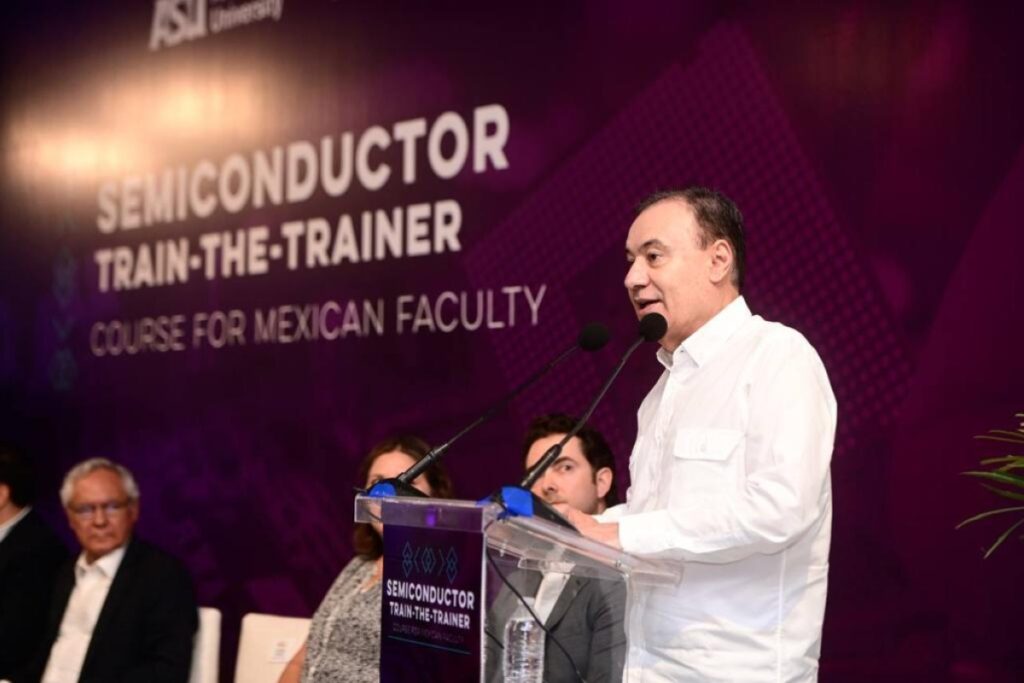
Sonora Gov. Alfonso Durazo speaks to Mexican faculty during the opening cermony of the “train-the-trainer” semiconductor course held in Hermosillo, Sonora, July 17–20.
Photo courtesy Jose Quiroga
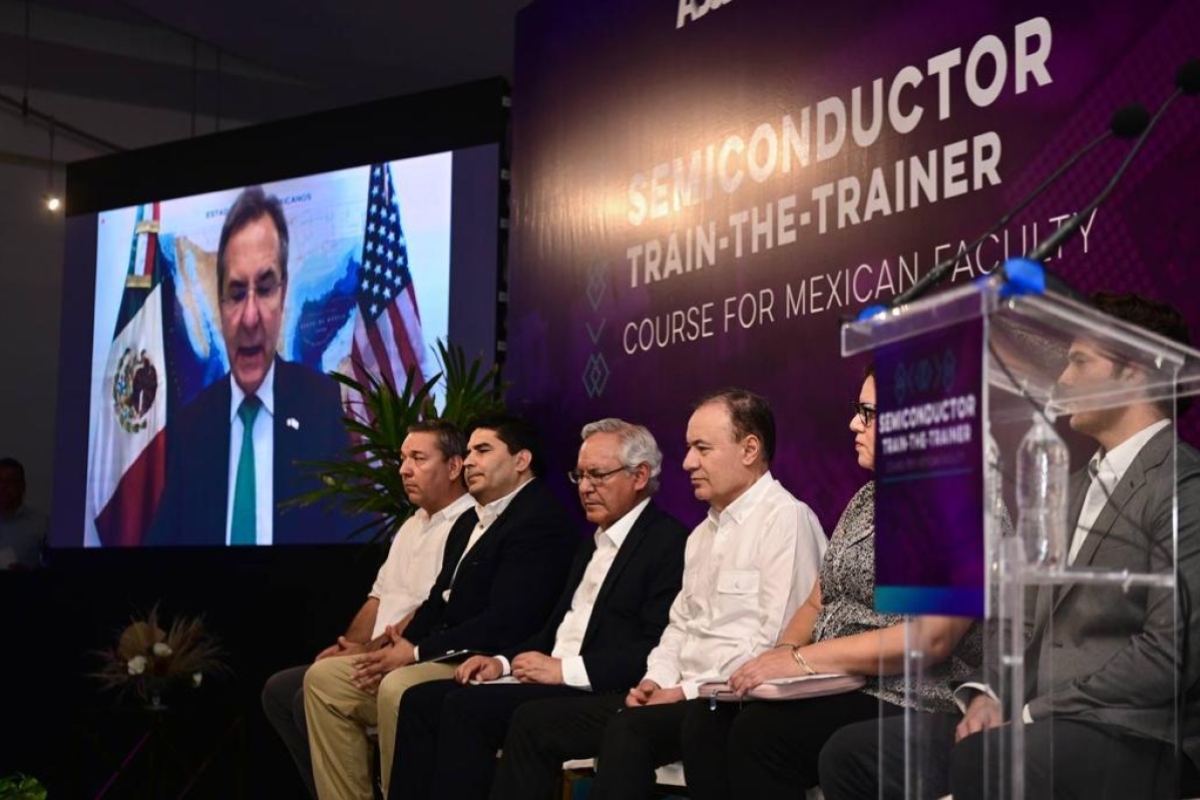 Mexico’s Ambassador to the U.S. Esteban Moctezuma Barragán provides remarks virtually during the “train-the-trainer” course opening ceremony July 17 in Hermosillo, Sonora.
Mexico’s Ambassador to the U.S. Esteban Moctezuma Barragán provides remarks virtually during the “train-the-trainer” course opening ceremony July 17 in Hermosillo, Sonora.
Photo courtesy Jose Quiroga
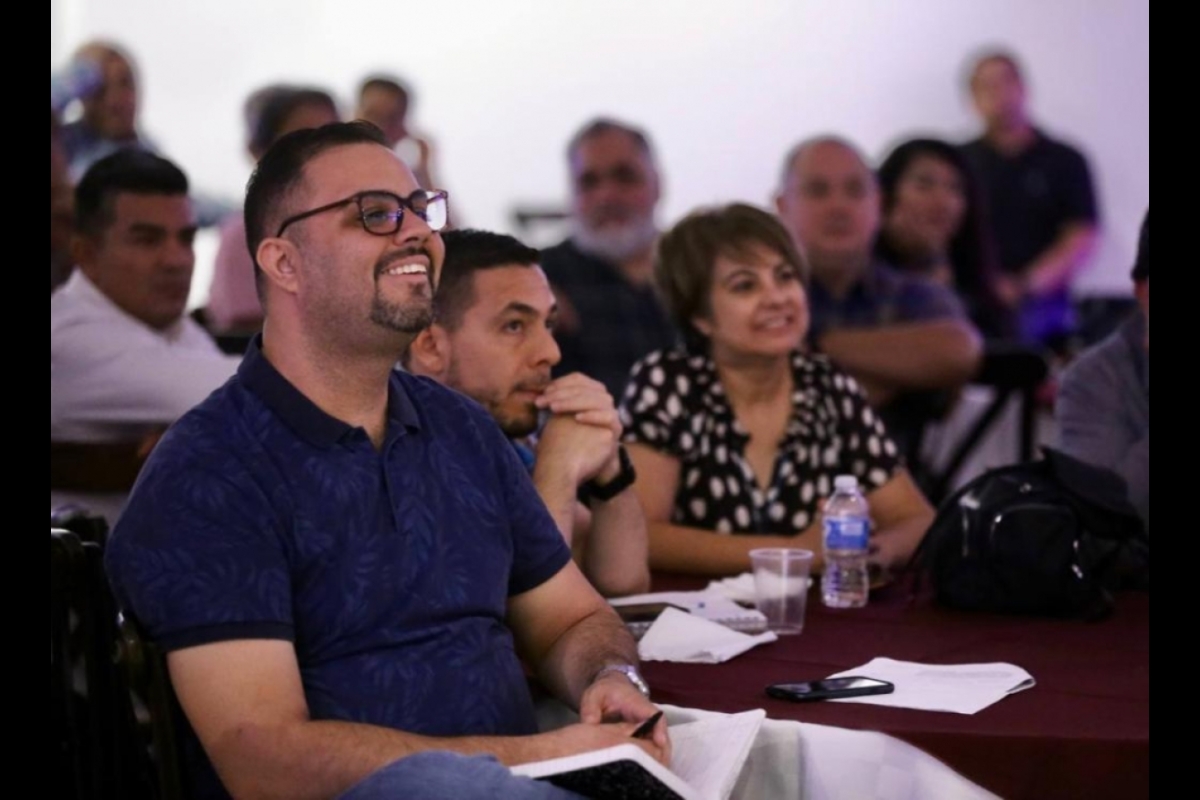 Faculty representing over 25 higher education institutions across Mexico listen to speakers during the “train-the-trainer” course held July 17–20 in Hermosillo, Sonora.
Faculty representing over 25 higher education institutions across Mexico listen to speakers during the “train-the-trainer” course held July 17–20 in Hermosillo, Sonora.
Photo courtesy Jose Quiroga
Quiroga said that some of the outcomes of this first engagement are the creation of a “4 + 1” program where students can complete their undergraduate program in Mexico and come to ASU to obtain a master’s degree in materials science and engineering; student and faculty exchange programs focused on research projects; and the certification of Mexican students and faculty on the ASU Graduate Certificate in Semiconductor Processing.
“Also, a Phase 2 workshop is being planned to bring a subset of these participants to ASU for a one-week study tour where they will visit ASU labs and research centers, and semiconductor companies in the Valley to gain a deeper understanding of the ecosystem in Arizona and workforce development needs of the semiconductor industry,” Quiroga said. “These and other ASU activities in Mexico related to semiconductors are being implemented to promote the expansion of the international assembly, testing and packaging capacity needed to diversify the global semiconductor supply chain, as outlined by the International Technology Security and Innovation Fund, appropriated under the CHIPS Act of 2022.”
In May, government and industry leaders from the U.S., Mexico and Canada gathered at a high-level conference hosted by ASU in Washington, D.C., to plot the future of the semiconductor industry in North America. The inaugural North America Semiconductor Conference consisted of multiple sessions and panel discussions about the need for an integrated strategy, including workforce development and greater engagement by universities.
Fielding a workforce in Sonora to support foreign trade interests was previously a challenge, said Sonora Gov. Alfonso Durazo during opening comments. However, he is confident the right resources are now in place.
“We have six new programs of higher education in order to start moving this forward,” Durazo said. “In August we’re going to start the engineer career in the semiconductor industry run by our biggest university, UNISON. We also have a program with 5,000 enrolled students. The main axis of Sonora’s plan is education and our commitment to increase opportunities.”
Jim O’Brien, ASU senior vice president of university affairs and chief of staff to President Michael Crow, addressed event participants virtually and called it a “tremendous gathering of talent, energy and ideas.” He called the overall project an important one from an educational, institutional and state perspective.
“This project illustrates how universities in Mexico and the U.S., the states and the countries themselves can work together to solve problems,” O’Brien said. “I do want to let you know that ASU is absolutely committed and making sure that what we are celebrating today is only the first of many steps in doing more to link North America around this tremendous opportunity.
“And as President Crow would say, ‘We’re all in, we’re ready to go.’”
Signed into law by President Joe Biden in August 2022 with bipartisan congressional approval, the CHIPS Act provides a $52 billion federal government investment to accelerate and increase U.S. semiconductor manufacturing. Microchips are essential to computing, car manufacturing, cell phones and many other industries, including defense. Currently, only 10% of the world’s microchip supply are produced by American companies.
Top photo: Faculty representing over 25 higher education institutions across Mexico display their certificates on July 20 showing completion of the semiconductor “train-the-trainer” course held in Hermosillo, Sonora. Photo courtesy Jose Quiroga
Microelectronics SDG 04 Quality Education SDG 08 Decent Work and Economic Growth SDG 09 Industry, Innovation and Infrastructure SDG 17 Partnerships for the Goals Faculty Corporation Engineering Science and technology Off campus International Ira A. Fulton Schools of Engineering Office Of The President Office of University Affairs

